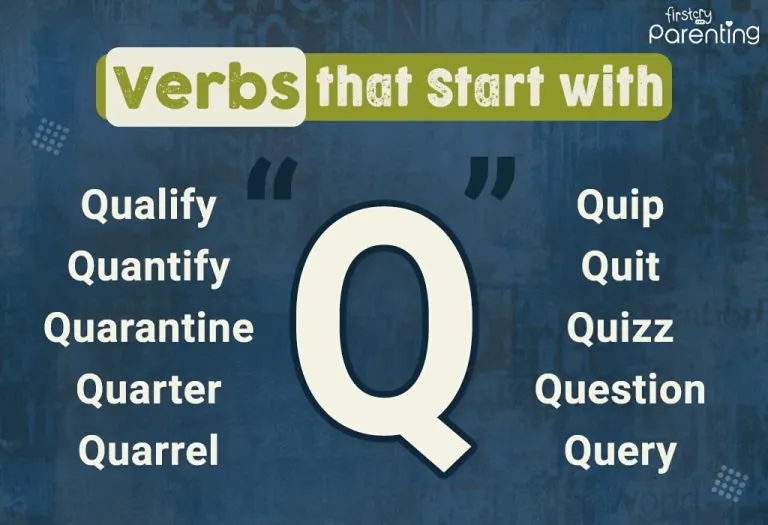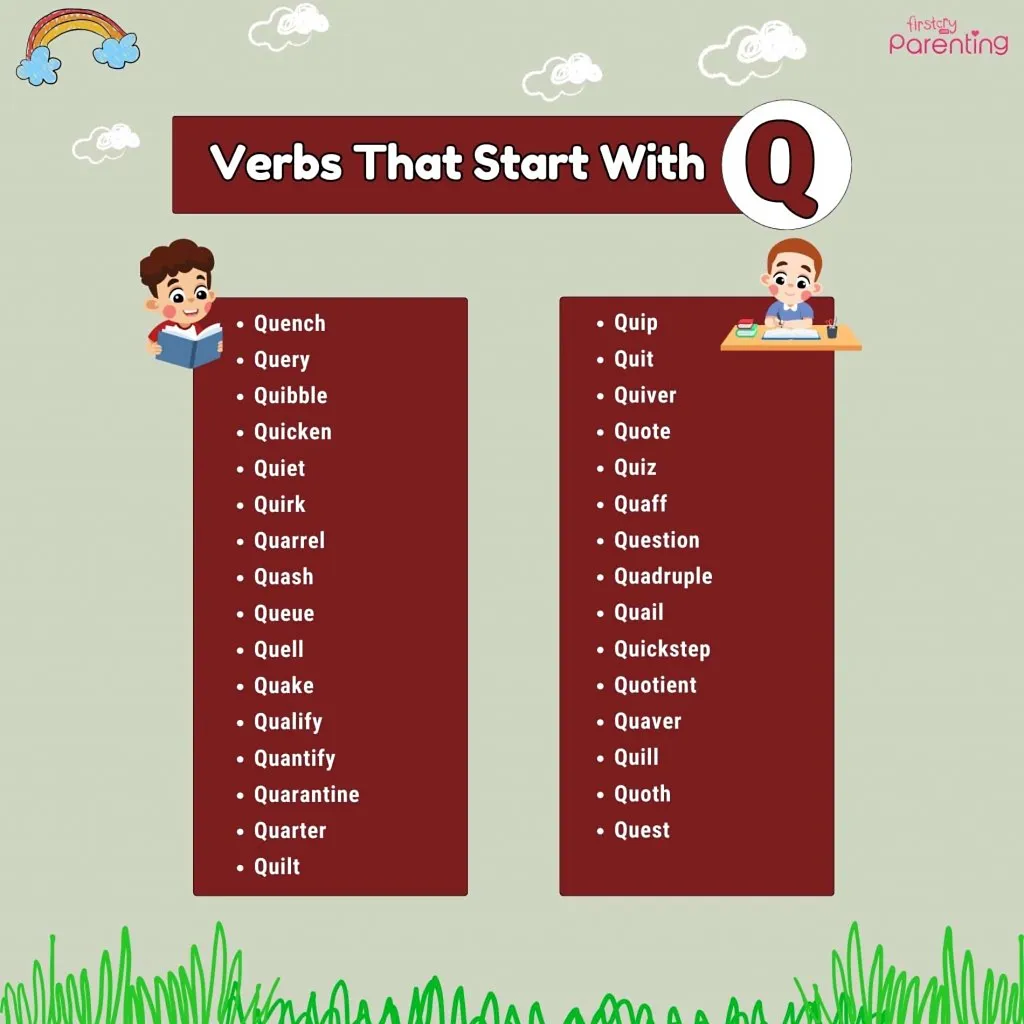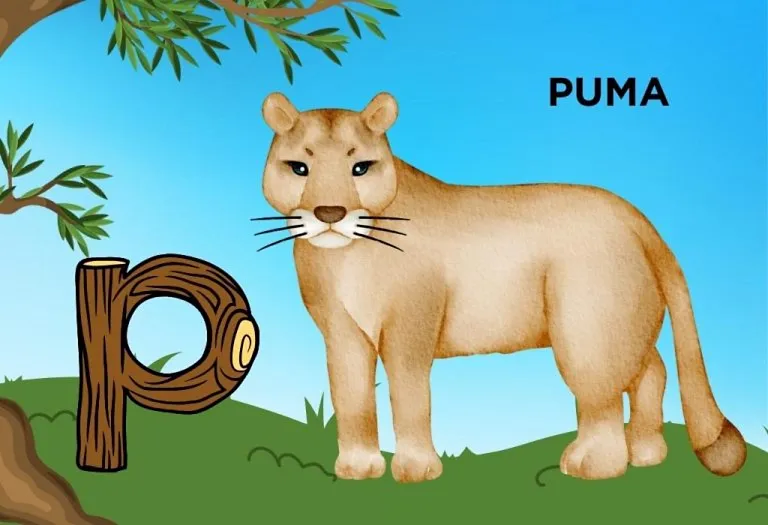Verbs That Start With Q in English (With Meanings & Examples)
Verbs bring our language to life and play a pivotal role in shaping our thoughts and expressions. As we dive into the alphabet’s quieter corners, the letter ‘Q’ offers a unique treasure chest of verbs that are as intriguing as they are infrequent. This exploration is not just about memorizing words; it’s about igniting curiosity, enhancing communication skills, and expanding vocabulary for kids.
So, let’s embark on this linguistic adventure together, discovering verbs that start with ‘Q’ for preschoolers and kids and expanding our vocabulary to warm, personal, and engaging words.
What Are the Verbs Beginning With Q?
Verbs starting with Q are action words in English that kick off with the quirky and quite distinctive letter ‘Q.’ While not as commonly encountered as verbs beginning with more prevalent letters, these verbs with Q carry a unique set of actions and meanings, making them valuable additions to our language. From ‘quench’ to ‘query,’ each verb opens up new possibilities for expression and understanding.
Common Verbs Starting With Q
Diving into English verbs starting with ‘Q’ unveils a fascinating collection of actions, from the everyday to the exotic. These verbs, though fewer in number compared to those starting with other letters are essential for a well-rounded and expressive vocabulary. Let’s explore these verbs, understand their meanings, and see them come alive in example sentences.
1. Quench
To satisfy thirst or extinguish a fire.
Example: She quickly quenched her thirst with a glass of cold water.
2. Query
To ask questions or inquire about something.
Example: He decided to query the reason behind the sudden change in policy.
3. Quibble
To argue or raise objections about a trivial matter.
Example: They continued to quibble over minor details in the contract.
4. Quicken
To make something move or happen faster.
Example: The sight of the finish line quickened her pace.
5. Quiet
To become silent or less noisy.
Example: She managed to quiet the noisy classroom by starting an engaging story.
6. Quirk
To twist or move with sudden twists or turns.
Example: His mouth quirked into a smile at the unexpected joke.
7. Quarrel
To have a heated argument or disagreement.
Example: They quarrelled over who gets to play with the toy first.
8. Quash
To reject or void, especially by legal procedure.
Example: The court quashed the previous ruling due to new evidence.
9. Queue
To line up or wait in line for something.
Example: We had to queue for hours to get tickets to the concert.
10. Quell
To suppress or put an end to something, typically by force.
Example: The police acted swiftly to quell the disturbance.
Action Verbs That Start With Q
Action verbs that start with the letter Q are active words that propel our sentences into motion, showcasing activities and operations in various contexts. These verbs bring language to life and allow us to precisely describe actions, making our communications more precise and more vivid. Let’s take a closer look at action verbs beginning with ‘Q,’ along with their meanings and examples of usage.
1. Quake
To shake or tremble from cold, weakness, fear, or excitement.
Example: The ground quaked beneath our feet during the earthquake.
2. Qualify
To demonstrate the ability or skills to compete in something.
Example: She will qualify for the national team if she wins this race.
3. Quantify
To measure or express the quantity of something.
Example: The scientist attempted to quantify the chemical reaction’s speed.
4. Quarantine
To isolate or separate to prevent the spread of disease.
Example: The sick passengers were quarantined upon arrival at the port.
5. Quarter
To divide or cut something into four equal parts.
Example: The chef quartered the apples before baking the pie.
6. Quip
To make a witty or clever remark.
Example: He quipped that we were lost but at least making good time.
7. Quit
To leave or cease from doing something.
Example: She decided to quit her job and travel the world.
Positive Verbs That Start With Q
Positive verbs that start with ‘Q’ cover actions that convey positivity, encouragement, and constructive outcomes. These verbs enhance our vocabulary and allow us to express actions and intentions that benefit ourselves and others. Let’s explore these positive verbs, beginning with Q and their meanings and examples.
1. Quiver
To exhibit lively or excited anticipation.
Example: Her heart quivered with joy when her friend returned home.
2. Quote
To reference a positive or inspirational saying.
Example: During his speech, he quoted Gandhi to emphasize the power of non-violence.
3. Quiz
To engage in a fun and educational questioning game.
Example: She quizzed her students with trivia to make learning history more enjoyable.
More Verbs That Begin With Q
In addition to the verbs we’ve explored, the English language is rich with various other verbs that start with the letter Q. These verbs encompass a wide range of actions, from the simple to the complex, further expanding our vocabulary. Below is a comprehensive table featuring verbs that begin with ‘Q,’ which describes more actions and uses for writers, speakers, and learners alike.
| Verb | ||
| Quaff | Question | Quadruple |
| Quail | Quickstep | Quotient |
| Quaver | Quill | Quoth |
| Quest | Quilt | |
This list showcases the diversity and versatility of verbs starting with Q, each bringing its unique flavour and function to the language. Whether crafting compelling narratives, enhancing communication, or enriching vocabulary, these verbs open up endless possibilities for expression.
FAQs
1. What easy verbs start with ‘Q’ for kids to learn?
Easy verbs that start with ‘Q’ for kids to learn include ‘quack’ (like what a duck does), ‘quit’ (to stop doing something), and ‘quiz’ (to test knowledge in a fun way).
2. How can learning verbs that start with ‘Q’ improve my English vocabulary?
Learning verbs that start with ‘Q’ can improve your English vocabulary by expanding your range of expression, helping you describe actions more precisely, and enhancing your understanding of language nuances.
Exploring verbs that start with ‘Q’ enriches our vocabulary, offering unique ways to articulate thoughts, actions, and emotions in English. These verbs add depth and finesse to our vocabulary, whether for academic growth, creative writing, or everyday communication. By embracing the diversity and potential of these verbs, we can communicate more effectively, enriching our conversations and writing with the English language.
Also Read: Verbs That Start With A to Z
| A | B | C | D | E | F | G | H | I | J | K | L | M |
| N | O | P | Q | R | S | T | U | V | W | X | Y | Z |
Was This Article Helpful?
Parenting is a huge responsibility, for you as a caregiver, but also for us as a parenting content platform. We understand that and take our responsibility of creating credible content seriously. FirstCry Parenting articles are written and published only after extensive research using factually sound references to deliver quality content that is accurate, validated by experts, and completely reliable. To understand how we go about creating content that is credible, read our editorial policy here.














.svg)
















